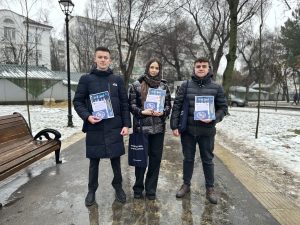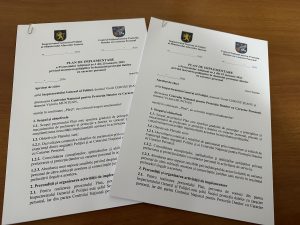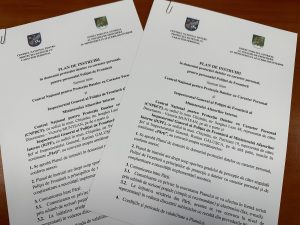Street action organized in the context of the “European Data Protection Day”
 57 Views
57 Views
Every year, on January 28, the European community celebrates “European Data Protection Day”, a landmark event, supported by the European Commission, which promotes the right to privacy and the protection of personal data. This day represents a moment of reflection on the importance of protecting information containing personal data in the digital age and provides an opportunity to strengthen awareness at the societal level regarding the fundamental rights of citizens.
European Data Protection Day is important not only for the member states of the Council of Europe, but also for the entire global community involved in the field of data protection. In a time when personal information is processed and stored on a large scale, compliance with the principles of confidentiality and security becomes essential for protecting privacy and preventing data misuse.
On this occasion, the National Center for Personal Data Protection (NCPDP) annually organizes a series of activities aimed at raising citizens’ awareness, promoting good practices in data protection and providing practical guidance to prevent situations of non-compliant processing of personal data.
These activities also include street actions, through which NCPDP brings information directly to the community and interacts with the general public.
In this context, on January 26, NCPDP employees carried out a street action in front of the Arc de Triomphe in Chisinau, distributing information materials to passersby and explaining the importance of personal data protection. Citizens were informed about the notion of personal data, the rights of data subjects, the security and confidentiality measures that must be respected, as well as the fundamental principles of data protection. In addition, citizens received practical recommendations on actions to be taken in the event of non-compliant processing of their personal data
Such initiatives play a key role in educating the public, motivating citizens to be more attentive to how their data is collected and used. NCPDP aims to continue organizing information and awareness-raising actions this year, contributing to building a solid culture of personal data protection in the Republic of Moldova and creating a safe and informed environment, in which data protection is a priority for the entire community.













